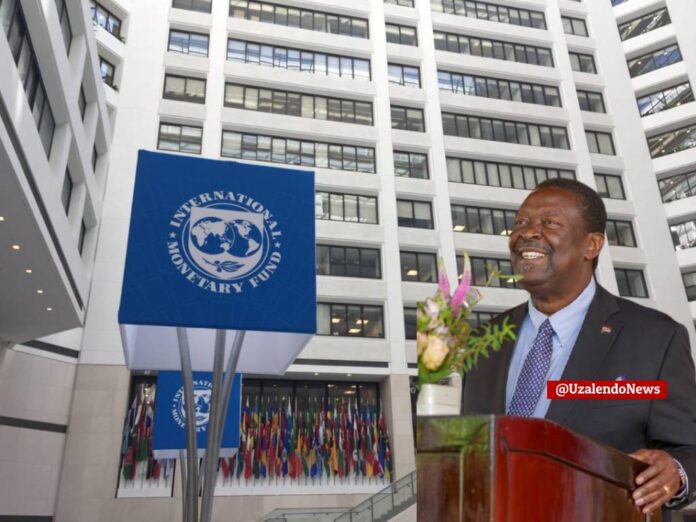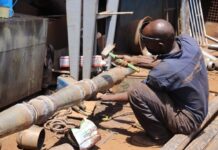The Kenyan government has welcomed the International Monetary Fund (IMF) to conduct a comprehensive Governance Diagnostic Assessment aimed at identifying corruption risks threatening the country’s macroeconomic stability.
The initiative was officially launched today by H.E. Dr. Musalia Mudavadi, Prime Cabinet Secretary and Cabinet Secretary for Foreign and Diaspora Affairs, during a meeting with IMF officials in Nairobi.
Dr. Mudavadi described the IMF’s involvement as a critical step in addressing governance challenges, including corruption and conflicts of interest, which have long hindered Kenya’s economic progress.
“This assessment will enable us to implement priority reforms to support economic growth,” he said, emphasizing the government’s commitment to transparency and accountability. The National Treasury has been designated as the focal point for the mission.
The process begins with a scoping mission led by Ms. Rebecca A. Sparkman, the IMF’s Division Chief for Revenue Administration and Fiscal Affairs. This initial phase will examine vulnerabilities in six key areas: fiscal governance, Central Bank operations, financial sector oversight, market regulation, rule of law, and anti-money laundering efforts.
A detailed report from this mission will pave the way for a full assessment scheduled to start in June 2025.
Dr. Mudavadi urged the IMF team to engage a wide range of stakeholders—national and county governments, the Judiciary, Parliament, private sector, civil society, and faith-based organizations—to ensure a holistic understanding of the issues at play.
“A robust stakeholder engagement process, focused on institutions and systems, is vital in managing the sensitivities of our highly politicized and social media-savvy society,” he noted.
The Prime Cabinet Secretary also highlighted recent economic challenges, including budgetary constraints following the withdrawal of the Finance Bill 2024 in June last year.
The bill’s rejection, sparked by widespread protests led by Kenya’s youth against proposed tax hikes, has left the government grappling with limited fiscal space. Dr. Mudavadi expressed hope that the IMF’s findings would bolster efforts to stabilize the economy.
Ms. Sparkman outlined that the scoping mission will draw on the IMF’s global experience, having completed governance diagnostic reports for 20 countries since 2018, with 10 more underway. At Dr. Mudavadi’s request, the IMF will share lessons from these assessments to guide Kenya’s process.
The kickoff meeting was attended by key figures, including Mr. Albert Mwenda, National Treasury’s Director General for Budget, Fiscal and Economic Affairs, and Mr. Selim Cakir, IMF Resident Representative in Kenya, alongside other government and IMF officials.



















